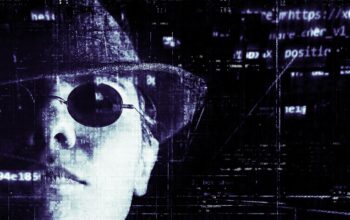A High-Stakes Cyber Scene Unfolds Globally
Cybersecurity has become a crucial player in international politics recently, with real risks making headlines. Just around the corner is the 2025 NATO Summit in The Hague, where leaders from 32 countries will face not only political discussions but also waves of cyber threats. Experts point out that Russia and China-backed hackers, cybercriminals, and activist groups are actively probing vulnerabilities and trying to influence the summit’s image. Their goal? To stir doubts about NATO’s unity and tap into sensitive agenda items like the Ukraine conflict and U.S. commitments. Physical security is tightened, but the digital front remains a buzzing battleground.
Tensions Spiraling in the Middle East’s Digital Realm
The U.S.-Iran conflict adds another layer of cyber insecurity. The U.S. Department of Homeland Security has raised alerts about potential cyberattacks amid this geopolitical friction. Iran has gone a step further by throttling internet access and mustering cyber groups warning regional neighbors not to side with Israel. Simultaneously, cyber spies linked to Iran’s elite cyber units have been accused by the U.S. government of deploying malware that targets critical infrastructure like power plants and factories — moves that could disrupt everyday life if successful.
Law Enforcement Strikes Back with Cyber Crime Crackdowns
Stateside, U.S. agencies like the FBI have been aggressively shutting down criminal cyber rings. Recent operations include cracking down on hackers, cyberstalkers, and illegal online marketplaces selling hacking tools. These actions show the ongoing war against cybercrime not only spills overseas but also hits home, safeguarding citizens and institutions against a wide web of digital threats.
Why This Matters to Everyone
Big or small, these stories show how cybersecurity shapes global affairs and everyday life. It’s not just about keeping hackers out; it’s about protecting alliances, national security, and the digital arteries of society. As cyberattacks grow more sophisticated, organizations and governments are urged to stay vigilant, update defenses, and understand that in the new digital age, politics and cybersecurity are inseparable.
Key Takeaways:
- The 2025 NATO Summit faces coordinated cyber and influence attacks aiming to weaken alliances.
- The U.S.-Iran conflict has escalated into cyber warfare involving internet restrictions and malware attacks on infrastructure.
- U.S. law enforcement intensifies efforts against cybercriminals, showing a multi-front digital defense.
- Cybersecurity is rapidly becoming a core element of political strategy and national safety.
Understanding these real-world cyber stories helps us all grasp how vital digital defense is, from global summits to personal data protection.
References:
- https://www.darkreading.com/threat-intelligence/dhs-cyberattacks-iran-conflict
- https://www.atlanticcouncil.org/news/press-releases/atlantic-council-and-munich-security-conference-launch-strategic-partnership-to-strengthen-global-security-and-cooperation/
- https://www.recordedfuture.com/research/threats-2025-nato-summit
- https://www.fbi.gov/investigate/cyber/news
- https://thehackernews.com/2025/06/iran-restricts-internet-access-to.html
- https://www.simplilearn.com/tutorials/cyber-security-tutorial/what-is-cyber-security
- https://substack.com/home/post/p-166151195
- https://en.wikipedia.org/wiki/Applications_of_artificial_intelligence



